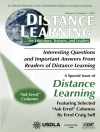Winner of the 2019 Mc Guffey Longevity Award from the Textbook & Academic Authors Association (TAA)
Recognized as one of the most cited methodology books in the social sciences, the Sixth Edition of Robert K. Yin′s bestselling text provides a complete portal to the world of case study research. With the integration of 11 applications in this edition, the book gives readers access to exemplary case studies drawn from a wide variety of academic and applied fields. Ultimately, Case Study Research and Applications will guide students in the successful use and application of the case study research method.
Daftar Isi
Foreword
Preface
Acknowledgments
About the Author
Chapter 1. Getting Started: How to Know Whether and When to Use the Case Study as a Research Method
Being Ready for the Challenge, and Setting High Expectations
Comparing Case Studies With Other Social Science Research Methods
Variations in Case Studies, but a Common Definition
Addressing Traditional Concerns About Case Study Research
Summary
Notes to Chapter 1
Chapter 2. Designing Case Studies: Identifying Your Case(s) and Establishing the Logic of Your Case Study
General Approach to Designing Case Studies
The Role of Theory in Research Designs
Criteria for Judging the Quality of Research Designs
Case Study Research Designs
Modest Advice in Selecting Case Study Designs
Notes to Chapter 2
Application #1: An Exploratory Case Study: How New Organizational Practices Become Routinized
Application #2: Defining the “Case” in a Case Study: Linking Job Training and Economic Development Initiatives at the Local Level
Application #3: How “Discovery” Can Occur in the Field: Social Stratification in a Midsized Community
Chapter 3. Preparing to Collect Case Study Evidence: What You Need to Do Before Starting to Collect Case Study Data
The Case Study Researcher: Desired Skills and Values
Preparation and Training for a Specific Case Study
The Case Study Protocol
Screening the Candidate Cases for Your Case Study
The Pilot Case Study
Summary
Notes to Chapter 3
Chapter 4. Collecting Case Study Evidence: The Principles You Should Follow in Working With Six Sources of Evidence
Six Sources of Evidence
Four Principles of Data Collection
Summary
Notes to Chapter 4
Application #4: Doing Interviews in the Field: Citizens on Patrol
Application #5: Making Field Observations: First Day in an Urban Neighborhood
Application #6: Assembling a Question-and-Answer Database: A Case Study of a Community Organization
Chapter 5. Analyzing Case Study Evidence: How to Start Your Analysis, Your Analytic Choices, and How They Work
An Analytic Strategy: More Than Relying on Analytic Tools
Five Analytic Techniques
Pressing for a High-Quality Analysis
Summary
Notes to Chapter 5
Application #7: Using a Case Study to Compare Directly Competing Rival Hypotheses: Whether Military Base Closures Produce Catastrophic Economic Impacts or Not
Application #8: A Nutshell Example of an Explanatory Case Study: How a Federal Award Affected a University Computer Department
Application #9: An Explanatory Case Study: Transforming a Business Firm Through Strategic Planning
Chapter 6. Reporting Case Studies: How and What to Compose
Audiences for Case Study Research
Varieties of Case Study Compositions
Procedures in Composing a Case Study
What Makes an Exemplary Case Study?
Notes to Chapter 6
Application #10: A Multiple-Case Study Integrating Qualitative and Quantitative Data: Proposal Processing at 17 Universities
Appendix A. A Note on the Uses of Case Study Research in Psychology
Appendix B. A Note on the Uses of Case Study Research in Evaluations
Application #11: An Evaluation Case Study: Evaluation of a Community Coalition’s Campaign
Brief Glossary of Terms Directly Related to Case Study Research
References
Author Index
Subject Index
Tentang Penulis
Robert K. Yin is President of COSMOS Corporation, an applied research and social science firm. Over the years, COSMOS has successfully completed hundreds of projects for federal agencies, state and local agencies, and private foundations.Outside of COSMOS, Dr. Yin has assisted numerous other research groups, helping to train their field teams or to design research studies. The most recent such engagements have been with The World Bank, the Division of Special Education and dis Ability Research at George Mason University, the Department of Nursing Research and Quality Outcomes at the Children’s National Health System (Washington, DC), and the School of Education, Southern New Hampshire University.Dr. Yin has authored over 100 publications, including authoring or editing 11 books (not counting the multiple editions of any given book). Earlier editions of the present book have been translated into eight languages (Chinese, Japanese, Korean, Swedish, Romanian, Italian, Polish, and Portuguese), and a second book on Qualitative Research from Start to Finish (2016) is in its 2nd edition and has been translated into four languages (Chinese, Korean, Swedish, and Portuguese). Dr. Yin received his B.A. in history from Harvard College (magna cum laude) and his Ph.D. in brain and cognitive sciences from MIT.












